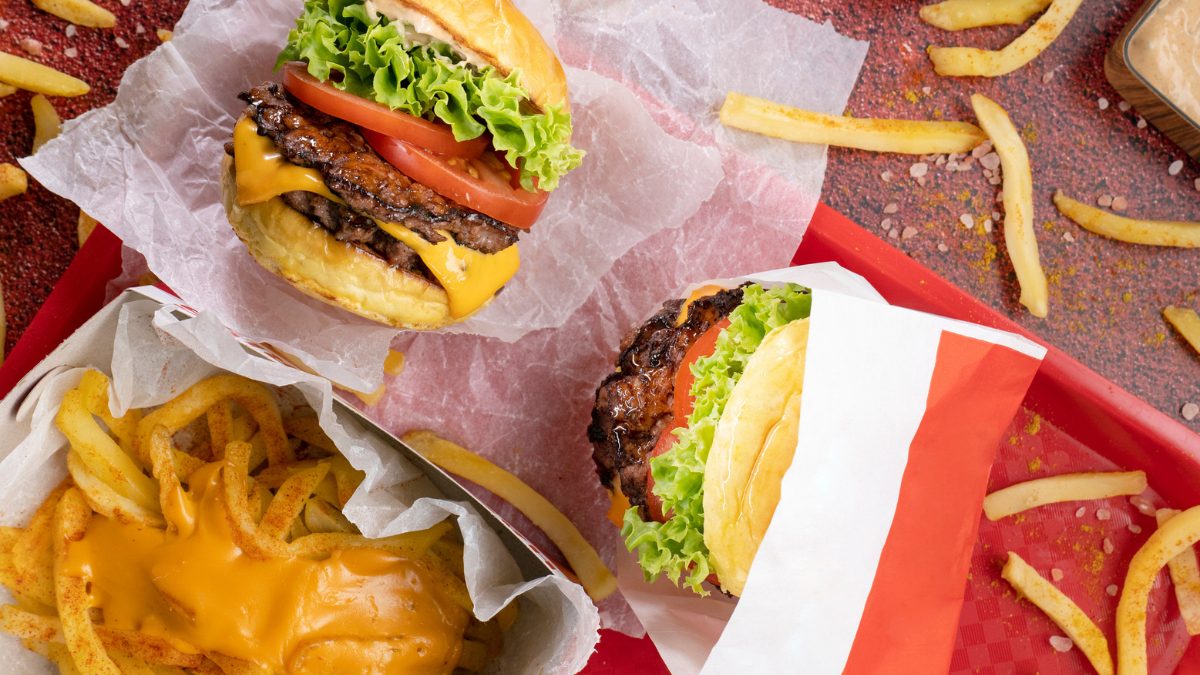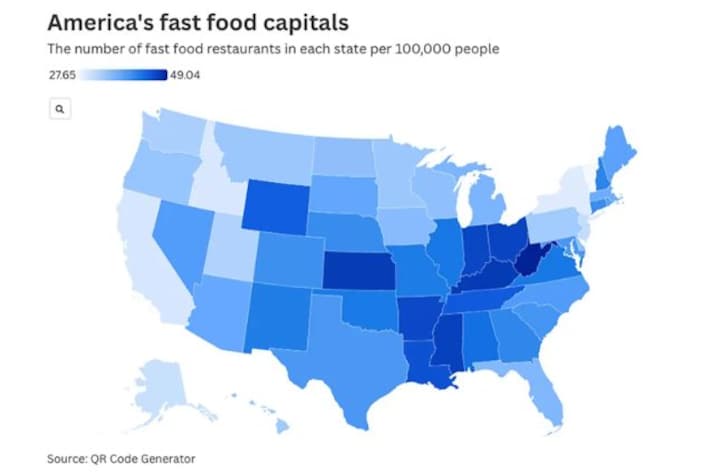
A new study has revealed the top 10 fast food capitals in the United States—and it’s not the usual suspects like New York or California. Based on the number of fast food restaurants per 100,000 residents, the ranking highlights states where drive-thrus dominate the dining landscape. The results show that rural and Southern states lead the pack, with West Virginia taking the crown as the most fast food–saturated state in the country.
The study, conducted by QR Code Generator, analyzed thousands of locations across major chains like McDonald’s, Subway, Wendy’s, and Pizza Hut to determine which states have the highest fast food density.
The Top 10 Fast Food Capitals by State
- West Virginia: Subway, McDonald’s, Wendy’s
- Kentucky: Subway, Papa John’s
- Kansas: Pizza Hut, Domino’s, Papa John’s
- Mississippi: Sonic, Wendy’s, Burger King
- Ohio: Starbucks, McDonald’s
- Indiana: McDonald’s, Pizza Hut
- Arkansas: Domino’s, McDonald’s
- Louisiana: Raising Cane’s, Pizza Hut
- Tennessee: Chick-fil-A, McDonald’s
- Wyoming: McDonald’s, Taco Bell
While exact density numbers for ranks 6–10 weren’t disclosed, all ten states were confirmed to have the highest concentration of fast food restaurants relative to population.

What’s Driving the Trend?
Experts point to a mix of affordability, convenience, and limited access to other dining options as key reasons why fast food thrives in these regions. Many of these states also have higher rates of rural populations, where fast food chains often serve as the most accessible and consistent food source.
Interestingly, the study also noted a correlation between fast food density and obesity rates, with West Virginia, Mississippi, and Arkansas ranking among the highest in both categories.
What It Says About American Food Culture
The findings reinforce the idea that fast food isn’t just a convenience—it’s a cornerstone of American dining, especially in areas where sit-down restaurants or fresh food markets are less prevalent. As QR Code Generator CEO Marc Porcar put it, “America is famous for its fast food culture—not only is it convenient, but it’s also affordable, and the data highlights which states particularly benefit from this”.
;Resize,width=767;)
